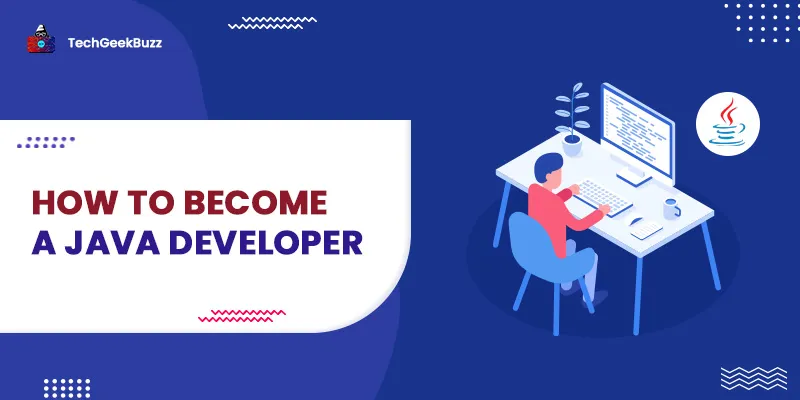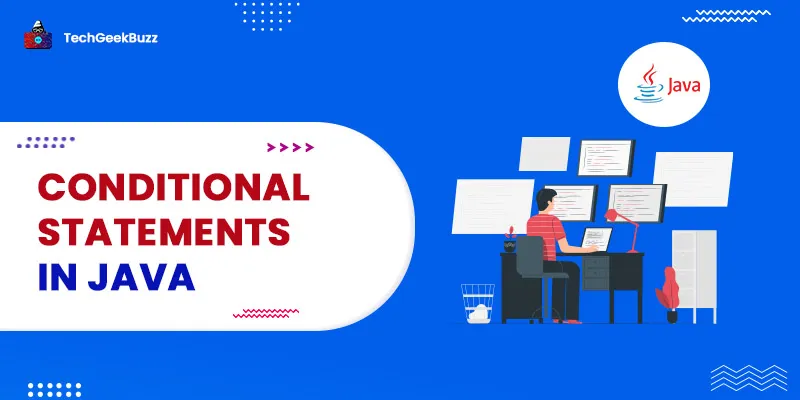Java is among the most preferred programming languages among developers for creating a variety of applications. It is a high-level, object-oriented , class-based programming language developed by James Gosling. It is a general-purpose language that works on the principle of WORA, which stands for Write Once, Run Anywhere. This states that once you write and compile Java on one computer, you can run that code anywhere on Java-enabled computers.
According to the Statista report of the most-used programming languages in the world, Java tops the list. The report states that 65.36% of total developers across the globe use the Java programming language. In addition, according to the TIOBE Index of the top programming languages in 2022, Java grabs the top position.
Also, the versatility of Java has forced organizations to adopt it as a back-end solution for developing robust software solutions. From startups to large-scale enterprises, most businesses rely on Java. So, this popularity of Java results in a very high demand for Java developers.
There is no question that a career as a Java developer will be profitable for you in terms of both professional growth and monetary gain. If you aspire to become a Java developer and have zero knowledge of becoming one, this article is for you.
In this article, we shall walk you through a step-by-step guide on how to become a Java developer. Before that, let us briefly discuss who a Java developer is and what their roles and responsibilities are.
So, let us get started!
Who is a Java Developer?
A Java developer is an information technology professional who specializes in designing, developing, and maintaining Java-based applications. They work as part of an IT team within an organization and collaborate with web developers and software engineers to leverage Java for websites and applications.
Furthermore, Java developers stay active throughout the development life cycle of a project. They have the ability to create effective solutions for any problems arising within an organization.
An organization requires both entry-level and experienced Java developers. Both these levels of Java developers have varying everyday tasks or duties. So now, let us have a look at the day-to-day tasks of both entry-level and senior Java developers.
Entry-Level Java Developers - Roles and Responsibilities
There are many companies that provide training to entry-level Java developers after they join the company, as they do possess limited experience. Some major tasks of an entry-level Java developer in every organization include:
- Honing Java programming expertise through training.
- Creating basic code.
- Fixing small and simple bugs or errors.
- Conducting a simple testing process.
- Assisting the IT team on Java projects.
- Creating documents that help end users navigate through the application under development.
Senior Java Developers - Roles and Responsibilities
Java developers having more than 5 years of experience working on different Java projects are senior or experienced Java developers. The following are some common duties of senior Java developers in every company:
- Defining objectives by analyzing user requirements.
- Planning and reviewing Java projects.
- Supervising the work done by junior Java developers.
- Collaborating and working with a variety of vendors.
- Conducting analysis, testing, and debugging of applications under development.
- Troubleshooting development and production issues.
- Using authoring tools to create multimedia applications.
- Proposing changes in the existing Java applications.
- Creating technical designs for application development.
Essential Skills to Become a Java Developer
Becoming a Java developer requires you possess a specific set of technical as well as interpersonal skills. The following are a few significant technical skills that every Java developer should possess:
-
Java Development Abilities
As a Java developer, you will have to create the source code for a variety of desktop-based and web-based applications. So, you must possess in-depth knowledge of each and every concept of Java required to write the source code, test it, fix bugs, and update it as required.
Some other Java concepts that you have knowledge of are as follows:
- Popular Java frameworks , such as Spring and Hibernate.
- A sound understanding of the differences between Java ME, Java EE, and Java SE.
- Popular development utilities, such as Java IDEs , automation tools, project management tools, like Maven, and many others.
-
Code Testing Competencies
As the responsibility of a Java developer includes testing and debugging the source code, you should be able to conduct unit testing , performance testing, static code testing, and functionality testing.
-
Software Development Life Cycle
Software development life cycle (SDLC) is a framework that developers and organizations adopt to develop software products in a structured manner. It divided the development of software into six different phases to ensure that the software product under development satisfies all quality requirements and customers’ expectations.
Not only as a Java developer but also as any kind of developer, you should have a strong understanding of SDLC and its phases. Also, you should be aware of different SDLC methodologies that define different approaches to software development.
-
Object-Oriented Programming
Having in-depth knowledge of object-oriented programming is beneficial not only for Java developers but for every other developer. You should be proficient in all the concepts of OOPs, such as abstraction, inheritance, polymorphism, encapsulation, classes, and objects.
-
Database Management Systems
Every application or website needs a database to store user information. As a Java developer, you should be proficient in using popular database management systems (DBMS), such as MySQL and MongoDB .
-
DevOps Tools
A DevOps tool is a software application that automates the software development process. To facilitate the development of Java applications, Java developers use popular DevOps tools , such as Jenkins, Docker, Maven, and many others.
If you wish to explore the skills to become a Java developer in detail, check out: Java Developer Skills .
How to Become a Java Developer?
The conventional way to become a Java developer is to start by earning a bachelor’s degree in computer science or the equivalent domain. However, this is a more convenient way than others because most organizations these days what applications to possess a bachelor’s degree. More precisely, a bachelor’s degree has not become one of the prerequisites for Java developers.
However, there are many students as well as working professionals from non-technical backgrounds who wish to become Java developers. Such aspirants can opt for Java BootCamps or Java courses that help them learn Java programming from scratch.
Let us now discuss a general step-by-step guide on how to become a Java developer.
1. Learn and Master Core Java
Core Java (Java Standard Edition (SE)) implies the fundamental concepts of Java. Some of the major topics of data structures, conditional statements, decision-making statements, data types, operations, and many others. Also, you will have to learn about various Java packages, such as java.lang, java.io, java.math, etc., to import them into your Java programs as and when required. Besides, make sure to have a good grasp of OOPs concepts.
2. Learn Java EE
Once you champion core Java, move on to learning advanced concepts, i.e., Java EE (Enterprise Edition). When you learn Java EE, you will be able to develop complex, enterprise-grade applications that run on servers. Basically, you will learn web development using Java. Some popular technologies you need to master in Java EE are Java Server Faces (JSF), servlet, and WebSocket.
3. Develop Essential Skills
Besides learning Java, you should also work on developing other essential skills, such as databases, OOPs, DevOps tools, software development life cycle, testing competencies, build tools, web technologies, and IDEs, along with interpersonal skills.
4. Practice Java
Only learning core and advanced Java is not enough. You need to practice a lot until you master the concepts. Try practicing the syntax without errors and solve numerous coding challenges to understand how to implement Java concepts.
There are a galore of platforms available on the web where you can solve coding challenges in multiple programming languages. Some of these platforms include HackerRank, CodeChef, LeetCode, CodinGame, and Coderbyte. The more coding challenges you solve, the stronger you will get with the Java concepts.
5. Start Developing Java Projects
One of the best and most proven ways to hone your Java expertise is to develop multiple small and simple projects. When you put Java concepts into practice, you will better understand how and where to use them and how they work.
Later, you can move on to creating Java projects using JSP and Servlets. Try developing at least a single project using both of these technologies.
When you develop projects, employers get the idea that you possess practical knowledge of the programming language.
6. Earn a Java Certification
A Java certification demonstrates that you possess profound knowledge of the programming language. Also, when you hold a Java certification, it makes you stand out from your counterparts and increases your chances of getting hired by potential employers. Among various Java certifications, the ones issued by Oracle seem to be extremely valuable in terms of jobs.
For more information on Java certifications, check out: Best Java Certifications .
7. Build an Impactful Resume
After you learn and master Java, develop a few projects, and earn any Java certification, consider redesigning your resume that aligns with the position of a junior or entry-level Java developer. Make sure to include all the Java skills you learned and mastered. Also, don’t forget to mention in your resume all the Java projects you developed while practicing and Java certification (if any).
8. Apply for Entry-Level Jobs
Finally, you can apply for an entry-level Java developer position through various job portals, such as Indeed, LinkedIn, Monster, and many others. Just don’t stop after applying for jobs. Make sure to prepare for interviews by referring to some commonly expected Java interview questions , appearing for mock interviews, revising Java concepts, and practicing Java continuously.
How Much Do Java Developers Earn?
The salary for all Java developers is not the same, Instead, it varies depending upon certain factors, such as experience level, skills, and location. The first and foremost factor in determining the salary of Java developers is their experience level.
According to Payscale , the salary of entry-level Java developers (less than one year of experience) in the United States ranges from $62K to $77K per annum. One with 5 to 9 years of experience working with Java earns an average of $88K annually in the US. The senior Java developers with more than 9 years of experience earn $1.2 lakhs per year.
Want to explore Java Developer's Salary in India? You can check it out here .
Conclusion
With in-depth knowledge of core and advanced Java, along with OOPs, databases, Java build tools, DevOps tools, frameworks, and other development utilities, you can definitely become a successful Java developer. Also, interpersonal skills, such as good communication, teamwork, attention to detail, and time management, are equally significant. With strong determination, perseverance, and investing a lot of time in studying and practicing concepts, you can surely become a successful Java developer.
People are also reading:





Leave a Comment on this Post